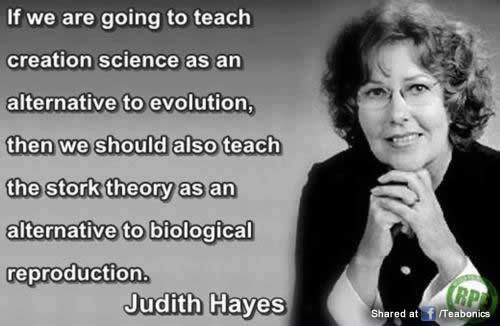Everything posted by BusaDave9
-
Automotive Science Question
My question pertained to torque and differentials. Yes, a tank's track gets such good traction it doesn't need a differential but that's not what I asked. It's like someone asking about how an airplane flies and you say "don't ask about airplanes, helicopters are much better because they can land in more locations." We're on a different topic now. I don't know what more to say. Yes, a tank gets good grip. I try to get good grip with my jeep by putting on larger tiers with an aggressive tread but I can't put a track on my jeep and even if I could it's not allowed because they tear up the trails and roads.
-
Automotive Science Question
Grip alone is not always the answer. A 2 wheel drive car may have a problem with grip, especially off road. A locking differential will help and four wheel drive helps. You are saying a tank has great traction. That's true, tracks help tremendously. A tank has such good traction (grip) that it almost never gets stuck. In a tank grip alone is good enough. I say grip alone is not always the answer because many vehicles don't get excellent grip. When a tire starts to spin that's when the type of differential is important. Off-roaders like to have locking differentials to apply torque to the wheel with the best traction.
-
Automotive Science Question
I'd rather not confuse this thread with talk about how a tank works but since you brought it up. The engine of a tanks turns the drive sprockets at the rear of the track (marked in red here). This is where the engine applies torque to the track to propel the tank. All the rest of the wheels are idle wheels. The yellow are road wheels with suspension. The blue is tension wheels for the mechanic to adjust how tight the track is. and that's all I have to say about that.
-
Automotive Science Question
Yes, if a tire can't grip it can't apply torque and propel the vehicle. But when one tire has grip and the other doesn't that's when the design of the differential makes a difference. When one tire on an open or regular differential has no grip then neither tire can propel the vehicle. (Torque is limited by the tire with the worst traction) When one tire on a locking differential has no grip then the one tire with grip can propel the vehicle. (Torque is delivered to the tire that has traction)
-
Automotive Science Question
Yes, I agree. When the vehicle is stuck no work is being done. When it starts to move lets not try to talk about which tire is doing the work. Then I'd like to talk about torque applied to the wheels.
-
Automotive Science Question
With an open differential, when one tire is spinning and the other is not. BOTH tires are helping push the car. You can say push. You can say torque. You can say load or work. You can say whatever you want but both tires help the car get moving. People see the one tire spinning and they think this one tire is the only one doing any effort to move the car. This is not true. Both tires are helping out EXACTLY the same amount. Thought experiment: Lets say someone is trying to turn the tire on dry pavement. He has a long torque wrench on the hub of the wheel. He may be pushing with all his might and the tire is not turning. He is still applying torque. If he had just a little more help he might be able to move the car. This is not how the engine applies torque. It applies it through the differential . With an open differential it applies torque equally to both wheels no matter what.
-
Automotive Science Question
Yes, people misunderstand torque, power and energy .... and I would like to add speed. Sure it takes energy to spin a tire but that doesn't mean it's applying that energy (or torque) to the ground. For that reason I say for this discussion it is best to imagine the weight of the wheel can be disregarded. Imagine it doesn't weigh anything. I disagree with your sentence I underlined. Lets say we've got an open differential and one tire is on glaze ice. You can't apply much torque to this tire before it starts to spin. Lets say only five foot pounds of torque can be applied before it spins on the ice. The other tire that is on dry pavement is also getting exactly the same amount of torque (5 foot pounds) but this is still not enough to move the jeep. This is why I say an open differential ALWAYS applies the same amount of torque to both wheels. On the other hand a locking differential will, at times, apply all the torque to the one tire with the best traction. For example lets say a tire on a jeep comes off the ground due to very rough terrain. (Imagine he's in 2 wheel drive, I don't want to think about what the other axle is doing). In this case the tire on the ground is getting all the torque and can still propel the jeep. I say no torque can EVER be applied to ANY tire that is off the ground. This is true if you have an open differential or a locker. All my off-road buddies disagree with that last statement. If the jeep has an open differential the tire off the ground would be spinning fast. My friends would say the spinning tire would have lots of torque. "Go grab that tire, Dave. You'd go flying up into the tree tops." 1. A spinning tire of any weight will be hard to stop. This is why I prefer to say it has neglectable weight for the sake of discussion. 2. If the spinning tire isn't pressing against the ground it CAN'T be applying any torque. To disagree would be to disagree with Newton's 3rd law, to every action there must be an equal and opposite reaction. To explain my last point it would be like me going into a gym and bench pressing an empty bar bell. If I were to yell out "I am pressing up with 300 pounds of force." Everyone would yell "BS!" It's not possible. Then lets say a couple of guys were to put 300 pounds of weight on the ends of my bar bell while I am holding it above me. Now I sure as hell better be able to hold up 300 pounds or that bar bell will come crashing down on my chest. On the other hand lets say I can bench press 300 pounds (a lie) and when that much weight is put on my bar bell I continue to do repetitions. Now everyone would say "WOW he can press up that hard. I guess he was always pressing up with 300 pounds of force like he said." NO NO NO just because I CAN bench press 300 pounds doesn't mean I was when there were no weights on my bar bell. This is all hypothetical, I'm a wimp and can't bench press 300 pounds.
-
Automotive Science Question
I enjoy taking my Jeep up into the mountains on rough trails. I have gotten into an argument with some of the others that also enjoy this pastime. I was hoping you guys could settle a dispute about locking differentials. Background I think this is mainly a science question. You don't have to know much about cars but you do need to know the following: Open Differential This is the most common differential found in almost all cars and trucks. Lets say a car with an open differential has the left tires on dry pavement. The right tires are in snow covered ice. If you have an open differential and you hit the gas your right tire would just spin in the ice and snow. Your left tire on the dry pavement will not turn. You're stuck. Locking differential These are not common. Sometimes they are found in off-road vehicles or in race cars. With a locking differential both tires on the axle turn in unison. In the same scenario, your right tires are in snow covered ice and your left tires are on dry pavement, you hit the gas. Now you can accelerate briskly. Because you have tires on the dry pavement you don't get stuck. The Debate Most people say an open differential will, at times, send all the torque to the one tire with the worst traction. And a locking differential will send torque to both tires equally. I say this is almost exactly opposite of the truth. I say an open differential will always apply torque equally to both tires on the axle. And I say a locking differential will, at times, send all the torque to the one tire with the best traction. So what do you guys say? Am I right or is everyone else wrong? I don't want to explain my reasoning until I hear from others.
-
The Official JOKES SECTION :)
- The Official JOKES SECTION :)
That reminds me of a cartoon I saw years ago. It was 2 astronauts standing on another planet looking at their own shadow. But the shadow was only their skeleton. One of the astronauts says "I don't like the looks of that." I wish I could find that on the internet. It would be much better than me describing it.- The Official JOKES SECTION :)
- The Official JOKES SECTION :)
- The Official JOKES SECTION :)
I agree. It's kinda hard to wipe that from your memory.- The Official JOKES SECTION :)
https://www.youtube.com/watch?v=UnyHMSz7JDE https://www.youtube.com/watch?v=UnyHMSz7JDE- The Official JOKES SECTION :)
^ ^ ^ I didn't understand that picture until I saw the image was titled "Genetics.jpg"- The Official JOKES SECTION :)
What? ? So my weed wacker is as powerful as a horse?? My car is more powerful than 200 horses???????? I know a gasoline engine can maintain power without getting tired but seriously. 200 horses can be pretty powerful. Or imagine not being able to pull a riding lawn mower unless you have 20 horses. Is this some kind of joke? Oh yes I guess I didn't pay attention to the thread.- The Official JOKES SECTION :)
Come on EdEarl, this is ridiculous. No thinking adult believes babies are brought by storks. On the other hand, if the Bible were to say we were brought here by storks, then a large percentage of the public would believe that beyond all logic. To believe otherwise would mean eternal damnation for doubting the Bible.- The Official JOKES SECTION :)
Two scientists walk into a bar. The first scientist says ‘I’ll have a glass of H2O” The second scientist says ‘I’ll have a glass of H2O Too" The second scientist dies of Hydrogen Peroxide poisoning.- The Official JOKES SECTION :)
A cop with a drug sniffing dog said to me "This dog tells me you're on drugs." I said "I'm on drugs? Your the one talking to dogs." The rest of the day didn't go very well.- The Official JOKES SECTION :)
A farmer named Malcom had a car accident. In court, the trucking company's fancy lawyer was questioning Malcom. "Didn't you say, at the scene of the accident, 'I'm fine?" asked the lawyer. Malcom responded, "Well, I'll tell you what happened. I had just loaded my favorite mule, Bessie..." "I didn't ask for any details", the lawyer interrupted. "Just answer the question. Did you not say, at the scene of the accident, 'I'm fine!'?" Malcom said, "Well, I had just got Bessie into the trailer and I was driving down the road....." The lawyer interrupted again and said, "Judge, I am trying to establish the fact that, at the scene of the accident, this man told the Highway Patrolman on the scene that he was just fine. Now several weeks after the accident he is trying to sue my client. I believe he is a fraud. Please tell him to simply answer the question." By this time, the Judge was fairly interested in Malcom's answer and said to the lawyer, "I'd like to hear what he has to say about his favorite mule, Bessie". Malcom thanked the Judge and proceeded. "Well as I was saying, I had just loaded Bessie, my favorite mule, into the trailer and was driving her down the highway when this huge semi-truck and trailer ran the stop sign and smacked my truck right in the side. I was thrown into one ditch and Bessie was thrown into the other. I was hurting, real bad and didn't want to move. However, I could hear ole Bessie moaning and groaning. I knew she was in terrible shape just by her groans. Shortly after the accident a Highway Patrolman came on the scene. He could hear Bessie moaning and groaning so he went over to her. After he looked at her, and saw her fatal condition, he took out his gun and shot her between the eyes. Then the Patrolman came across the road, gun still in hand, looked at me and said, "How are you feeling?" "Now what would you say?"- The Official JOKES SECTION :)
A farmer stopped by the local mechanic shop to have his truck fixed. They couldn't do it while he waited, so he said he didn't live far and would just walk home. On the way home he stopped at the hardware store and bought a bucket and a gallon of paint. He then stopped by the feed store and picked up a couple of chickens and a goose. However, struggling outside the store he now had a problem - how to carry his entire purchase home. While he was scratching his head he was approached by a little old lady who told him she was lost. She asked, "Can you tell me how to get to 1603 Mockingbird Lane?" The farmer said, "Well, as a matter of fact, my farm is very close to that house I would walk you there but I can't carry this lot." The old lady suggested, "Why don't you put the can of paint in the bucket.. Carry the bucket in one hand, put a chicken under each arm and carry the goose in your other hand?" "Why thank you very much," he said and proceeded to walk the old girl home. On the way he says "Let's take my short cut and go down this alley. We'll be there in no time." The little old lady looked him over cautiously then said, "I am a lonely widow without a husband to defend me. How do I know that when we get in the alley you won't hold me up against the wall, pull up my skirt, and have your way with me?" The farmer said, "Holy smokes lady! I'm carrying a bucket, a gallon of paint, two chickens, and a goose. How in the world could I possibly hold you up against the wall and do that?" The old lady replied, "Set the goose down, cover him with the bucket, put the paint on top of the bucket, and I'll hold the chickens."- The Official JOKES SECTION :)
- The Official JOKES SECTION :)
- The Official JOKES SECTION :)
These gun laws are getting ridiculous. The last time I went to the sporting goods store and was ready to pay for my purchase of ammo the clerk told me "Strip down facing me". Well, I did just as she instructed. As the screeching was dieing down i realized that she was talking about my credit card. Is it just me or do they need to be more clear with those instructions? I guess it hardly matters now. I was told I have to conduct my shopping elsewhere in the future. - The Official JOKES SECTION :)
Important Information
We have placed cookies on your device to help make this website better. You can adjust your cookie settings, otherwise we'll assume you're okay to continue.
Account
Navigation
Search
Configure browser push notifications
Chrome (Android)
- Tap the lock icon next to the address bar.
- Tap Permissions → Notifications.
- Adjust your preference.
Chrome (Desktop)
- Click the padlock icon in the address bar.
- Select Site settings.
- Find Notifications and adjust your preference.
Safari (iOS 16.4+)
- Ensure the site is installed via Add to Home Screen.
- Open Settings App → Notifications.
- Find your app name and adjust your preference.
Safari (macOS)
- Go to Safari → Preferences.
- Click the Websites tab.
- Select Notifications in the sidebar.
- Find this website and adjust your preference.
Edge (Android)
- Tap the lock icon next to the address bar.
- Tap Permissions.
- Find Notifications and adjust your preference.
Edge (Desktop)
- Click the padlock icon in the address bar.
- Click Permissions for this site.
- Find Notifications and adjust your preference.
Firefox (Android)
- Go to Settings → Site permissions.
- Tap Notifications.
- Find this site in the list and adjust your preference.
Firefox (Desktop)
- Open Firefox Settings.
- Search for Notifications.
- Find this site in the list and adjust your preference.





